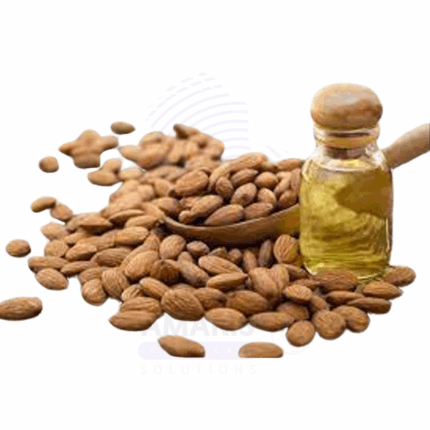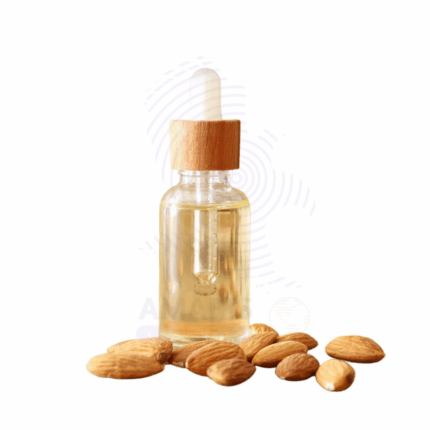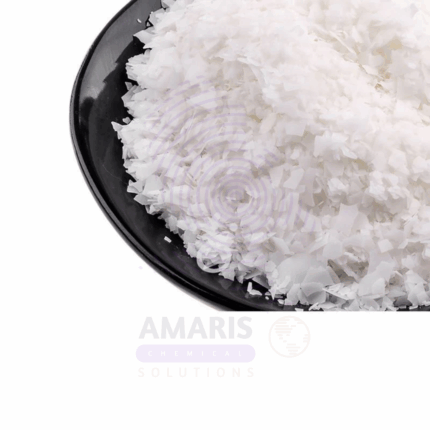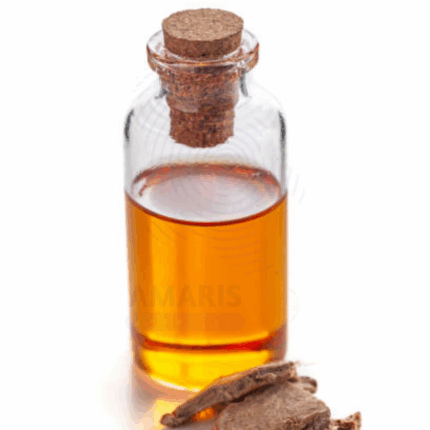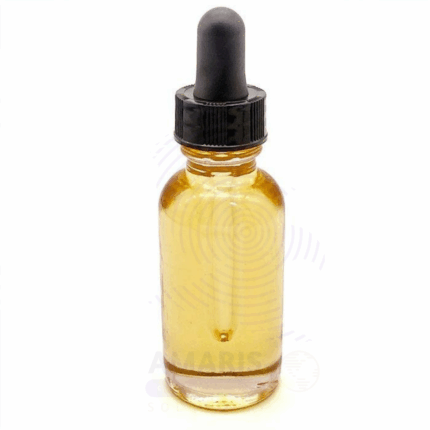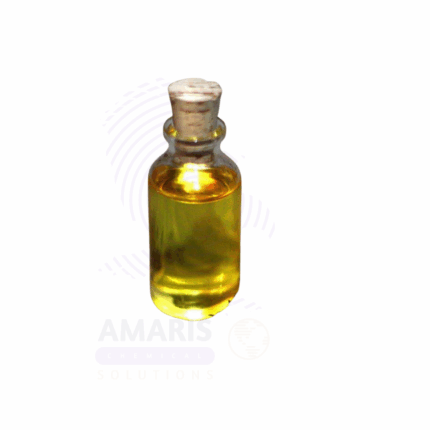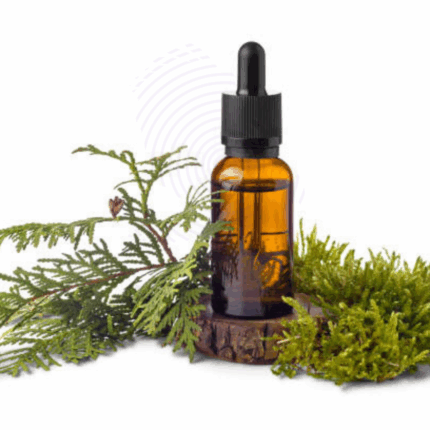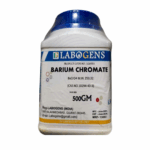
Barium Chromate Extra Pure
$ 17.00 Original price was: $ 17.00.$ 16.98Current price is: $ 16.98.
Coffee Oil
Whatsapp Order
Coffee Oil is a natural oil extracted from roasted or green coffee beans (Coffea arabica or Coffea canephora) through cold pressing or solvent extraction. It possesses a rich, warm, roasted coffee aroma and is packed with beneficial compounds including caffeine, diterpenes, and antioxidant-rich fatty acids. Due to its emollient and antioxidant properties, it is widely used in cosmetic, aromatherapy, food, and fragrance applications.
Coffee Oil is known to help stimulate circulation, reduce inflammation, and provide anti-aging support in skincare. Its energizing scent also makes it popular in perfumes and wellness blends. Food-grade versions are used to enhance flavors in gourmet and specialty food products.
Description
Table of Contents
Toggle
Coffee Oil
Primary Uses
- Cosmetics and Personal Care
- Used in facial oils, creams, and serums for antioxidant and anti-aging properties
- Incorporated into lip balms and body butters for moisturizing and conditioning effects
- Applied in cellulite treatments and firming creams to help improve circulation
- Added to exfoliating scrubs for revitalizing and toning the skin
- Included in shampoo bars and conditioners to promote hair shine and scalp health
- Used in under-eye creams to help reduce puffiness (caffeine content)
- Aromatherapy & Wellness
- Diffused for a stimulating, grounding, and energizing atmosphere
- Included in morning aromatherapy blends to promote alertness and mental clarity
- Used in stress-relieving and mood-enhancing formulations
- Added to bath oils and salts for invigorating soak blends
- Fragrance & Perfumery
- Featured as a base or middle note in warm, gourmand-style perfumes
- Blended with vanilla, chocolate, amber, and spice oils to create edible-inspired fragrances
- Used in luxury candles, colognes, and solid perfumes for rich aroma profiles
- Food and Beverage Industry
- Used as a flavoring in coffee-flavored liqueurs, desserts, and gourmet chocolates
- Incorporated into syrups, sauces, and specialty bakery items (food-grade only)
- Employed in energy snacks and protein bars for enhanced taste and aroma
Secondary Uses
- Household Products
- Added to scented candles and room sprays for a warm, inviting ambiance
- Used in linen sprays and potpourri for aromatic enhancement
- Pet Care Products
- Occasionally used in premium pet grooming products (fragrance-safe concentrations only)
KEY PRODUCT FEATURES
1. Basic Identification Attributes
- Botanical Source: Coffea arabica / Coffea canephora
- Common/Trade Name: Coffee Oil
- INCI Name: Coffea Arabica Seed Oil
- CAS Number: 8001-67-0 (cold-pressed) / 84650-00-0 (green bean)
- HS Code: 3301.29
- Synonyms: Roasted Coffee Oil, Coffee Bean Oil, Green Coffee Oil
2. Physical & Chemical Properties
- Physical State: Liquid oil
- Color & Odor: Dark brown to golden; rich roasted coffee aroma
- Solubility: Insoluble in water; soluble in alcohol and fixed oils
- Specific Gravity: 0.910 – 0.940
- Main Components: Caffeine, linoleic acid, palmitic acid, kahweol, cafestol
3. Safety & Hazard Attributes
- GHS Classification: Not classified as hazardous
- Toxicity: Non-toxic in recommended concentrations
- Allergen Information: Low risk, but always patch-test for cosmetic use
- Exposure Limits: None under normal usage
4. Storage & Handling Attributes
- Storage Conditions: Store in a cool, dark place away from direct heat
- Container Type: Amber glass bottles or stainless steel drums
- Shelf Life: 12–24 months when properly stored
- Handling Precautions: Avoid exposure to air and sunlight to prevent rancidity
5. Regulatory & Compliance Attributes
- Compliant with cosmetic regulations (EU, FDA, ASEAN)
- GRAS-listed for food use if food-grade
- Produced in GMP-certified facilities
- Approved for natural and organic product formulations
6. Environmental & Health Impact
- Biodegradability: Fully biodegradable
- Ecotoxicity: Low
- Bioaccumulation: Not expected
- Sustainable sourcing available from fair-trade or organic farms
SAFETY HANDLING PRECAUTIONS
Safety Handling Precautions
- PPE Required: Gloves recommended for bulk handling
- Handling Guidelines: Use in well-ventilated areas; do not overheat
First Aid Measures
- Inhalation: Move to fresh air if discomfort occurs
- Skin Contact: Wash with soap and water; discontinue if irritation develops
- Eye Contact: Rinse immediately with clean water
- Ingestion: Food-grade oil is safe in small quantities; otherwise, seek medical advice
Firefighting Measures
- Fire Hazards: Combustible at high temperatures
- Extinguishing Media: Dry chemical, foam, CO₂
- Special Precautions: Avoid direct flame during heating
- Hazardous Combustion Products: Carbon monoxide, carbon dioxide, acrid smoke
Related products
Almond Bitter Oil
Almond Bitter Oil, derived from the kernels of bitter almonds (Prunus amygdalus var. amara), is an essential oil known for its sharp, nutty, and marzipan-like aroma. This oil is produced through steam distillation of crushed bitter almond kernels and contains a naturally occurring compound called benzaldehyde, which gives it its characteristic scent. In purified form (free of hydrogen cyanide), bitter almond oil is used in fragrance, flavoring, and pharmaceutical applications.
Due to its potent aroma and biochemical properties, it is widely used in perfumery, baked goods flavoring (in controlled quantities), aromatherapy, and traditional topical remedies. It is important to distinguish between natural bitter almond oil, which must be detoxified, and synthetic benzaldehyde, which is commonly used as a substitute in commercial formulations.
Almond Fragrance Oil
Almond Fragrance Oil is a synthetic or naturally blended aromatic compound designed to replicate the warm, sweet, and nutty scent of almonds. It may incorporate notes of marzipan, vanilla, or cherry-like tones to mimic the characteristic aroma of bitter almonds without the presence of cyanogenic compounds. Unlike essential oils, fragrance oils are created for consistent aroma performance and are widely used across cosmetics, personal care, household products, and scented formulations.
This versatile oil delivers a nostalgic, comforting scent often associated with desserts, cleanliness, and warmth. It is valued for its stability in soaps, lotions, candles, and air care products. Almond Fragrance Oil is typically formulated to be allergen-compliant and IFRA-certified for safe use across applications.
Almond Wax
Almond Wax is a natural, plant-based wax derived from the hydrogenation of almond oil (Prunus amygdalus dulcis). It is a creamy to white, semi-solid wax with a mild, nutty scent and excellent emollient properties. Almond Wax is rich in fatty acids and has a smooth, soft texture, making it ideal for use in cosmetic, personal care, and candle formulations.
Due to its gentle consistency, skin-friendly profile, and moisturizing capabilities, Almond Wax is widely used in body butters, balms, lip care products, massage bars, and artisan soaps. It functions as a natural alternative to petroleum-based waxes and provides structure, viscosity, and glide to formulations. It also finds application in soft wax blends for natural candle products.
Cabreuva Oil
Cabreuva Oil is a gentle, sweet, woody-scented essential oil obtained via steam distillation of the wood of the Myrocarpus fastigiatus tree, native to South America. This light amber oil is known for its high content of nerolidol—a sesquiterpene alcohol with soothing, anti-inflammatory, and antimicrobial properties. With its mild, balsamic aroma and skin-calming effects, Cabreuva Oil is primarily used in cosmetics, perfumery, and aromatherapy applications.
It blends well with floral, citrus, and resinous oils, making it a versatile fixative in natural fragrance formulations. In personal care, it is valued for its skin-healing and regenerating effects, suitable for mature and sensitive skin types.
Calendula Oil Infused
Calendula Oil Infused is a golden-yellow carrier oil produced by macerating the dried flower petals of Calendula officinalis (commonly known as pot marigold) in a base oil, typically sunflower, olive, or sweet almond oil. This infusion draws out the calendula flower’s active constituents—including flavonoids, triterpenoids, and carotenoids—resulting in a gentle yet potent botanical oil widely used for its anti-inflammatory, healing, and skin-soothing properties.
Renowned in traditional herbalism and modern natural skincare, Calendula Infused Oil is especially valued for treating sensitive, damaged, or irritated skin. It’s a go-to oil in formulations for baby care, wound healing, and after-sun products. Unlike essential oils, this is not a distilled product and is safe for direct application to the skin.
Calmintha Oil
Calmintha Oil is an aromatic essential oil derived through steam distillation of the aerial parts of Calamintha nepeta or closely related species within the Calamintha genus. Also known as lesser calamint, Calmintha is a herbaceous plant known for its minty, slightly camphoraceous fragrance with subtle floral undertones. The oil is rich in compounds such as pulegone, menthone, and isomenthone, which contribute to its invigorating, clarifying, and antimicrobial properties.
Used in traditional herbal medicine, perfumery, and aromatherapy, Calmintha Oil offers refreshing aromatic effects and is frequently utilized in respiratory blends, skin formulations, and natural cleaning products. Due to its high pulegone content, topical use should be limited and well-diluted.
Caraway Oil
Caraway Oil is a volatile essential oil steam-distilled from the dried seeds of the Caraway plant (Carum carvi), a member of the Apiaceae family. It has a spicy, sweet, herbaceous aroma with warm undertones and is pale yellow to colorless in appearance. Known for its long-standing use in traditional herbal medicine and culinary flavoring, Caraway Oil contains carvone and limonene as its major constituents, responsible for its distinct aroma and therapeutic effects.
This oil is widely used in aromatherapy, digestive remedies, cosmetics, and pharmaceutical formulations. It is also valued in flavor manufacturing and oral care products for its carminative and antimicrobial properties.
Cedar Leaf Oil
Cedar Leaf Oil is a potent essential oil steam-distilled from the leaves and twigs of the Thuja occidentalis tree, also known as Northern White Cedar or Arborvitae. It has a sharp, camphoraceous, and woody aroma, largely due to its high thujone content. This oil is known for its antifungal, antiseptic, and insect-repellent qualities, making it a popular component in cosmetics, aromatherapy, natural cleaning products, and insecticides. It also plays a role in herbal and wellness applications when used topically and in moderation due to its potency.


 Preservatives(food)
Preservatives(food) Flavor Enhancers
Flavor Enhancers Acidulants
Acidulants Sweeteners
Sweeteners Antioxidants
Antioxidants Colorants(food)
Colorants(food) Nutraceutical Ingredients (food)
Nutraceutical Ingredients (food) Nutrient Supplements
Nutrient Supplements Emulsifiers
Emulsifiers
 Collectors
Collectors Dust Suppressants
Dust Suppressants Explosives and Blasting Agents
Explosives and Blasting Agents Flocculants and Coagulants
Flocculants and Coagulants Frothers
Frothers Leaching Agents
Leaching Agents pH Modifiers
pH Modifiers Precious Metal Extraction Agents
Precious Metal Extraction Agents
 Antioxidants(plastic)
Antioxidants(plastic) Colorants (Pigments, Dyes)
Colorants (Pigments, Dyes) Fillers and Reinforcements
Fillers and Reinforcements Flame Retardants
Flame Retardants Monomers
Monomers Plasticizers
Plasticizers Polymerization Initiators
Polymerization Initiators Stabilizers (UV, Heat)
Stabilizers (UV, Heat)
 Antifoaming Agents
Antifoaming Agents Chelating Agents
Chelating Agents Coagulants and Flocculants
Coagulants and Flocculants Corrosion Inhibitors
Corrosion Inhibitors Disinfectants and Biocides
Disinfectants and Biocides Oxidizing Agents
Oxidizing Agents pH Adjusters
pH Adjusters Scale Inhibitors( water)
Scale Inhibitors( water)
 Antioxidants(cosmetic)
Antioxidants(cosmetic) Emollients
Emollients Fragrances and Essential Oils
Fragrances and Essential Oils Humectants
Humectants Preservatives
Preservatives Surfactants(cosmetic)
Surfactants(cosmetic) Thickeners
Thickeners UV Filters
UV Filters
 Fertilizers
Fertilizers Soil Conditioners
Soil Conditioners Plant Growth Regulators
Plant Growth Regulators Animal Feed Additives
Animal Feed Additives Biostimulants
Biostimulants Pesticides (Herbicides, Insecticides, Fungicides)
Pesticides (Herbicides, Insecticides, Fungicides)
 Active Pharmaceutical Ingredients (APIs)
Active Pharmaceutical Ingredients (APIs) Excipients
Excipients Solvents(pharmaceutical)
Solvents(pharmaceutical) Antibiotics
Antibiotics Antiseptics and Disinfectants
Antiseptics and Disinfectants Vaccine Adjuvants
Vaccine Adjuvants Nutraceutical Ingredients (pharmaceutical)
Nutraceutical Ingredients (pharmaceutical) Analgesics & Antipyretics
Analgesics & Antipyretics
 Analytical Reagents
Analytical Reagents Solvents(lab)
Solvents(lab) Chromatography Chemicals
Chromatography Chemicals Spectroscopy Reagents
Spectroscopy Reagents microbiology-and-cell-culture-reagents
microbiology-and-cell-culture-reagents Molecular Biology Reagents
Molecular Biology Reagents Biochemical Reagents
Biochemical Reagents Inorganic and Organic Standards
Inorganic and Organic Standards Laboratory Safety Chemicals
Laboratory Safety Chemicals Specialty Laboratory Chemicals(Special Laboratory Equipment)
Specialty Laboratory Chemicals(Special Laboratory Equipment)
 Demulsifiers
Demulsifiers Hydraulic Fracturing Fluids
Hydraulic Fracturing Fluids Scale Inhibitors(oil)
Scale Inhibitors(oil) Surfactants(oil)
Surfactants(oil) Drilling Fluids
Drilling Fluids
 Dyes and Pigments
Dyes and Pigments Bleaching Agents
Bleaching Agents Softening Agents
Softening Agents Finishing Agents
Finishing Agents Antistatic Agents
Antistatic Agents
 Admixtures
Admixtures Waterproofing Agents
Waterproofing Agents Sealants and Adhesives
Sealants and Adhesives Curing Compounds
Curing Compounds Concrete Repair Chemicals
Concrete Repair Chemicals Anti-Corrosion Coatings
Anti-Corrosion Coatings
 Surfactants(cleaning)
Surfactants(cleaning) Builders
Builders Enzymes
Enzymes Solvents (Cleaning)
Solvents (Cleaning) Fragrances
Fragrances
 Electronic Chemicals
Electronic Chemicals Catalysts
Catalysts Lubricants
Lubricants Photographic Chemicals
Photographic Chemicals Refrigerants
Refrigerants Automotive chemicals
Automotive chemicals Pyrotechnic Chemicals
Pyrotechnic Chemicals
 Biodegradable Surfactants
Biodegradable Surfactants Bio-based Solvents
Bio-based Solvents Renewable Polymers
Renewable Polymers Carbon Capture Chemicals
Carbon Capture Chemicals Wastewater Treatment Chemicals
Wastewater Treatment Chemicals
 Pigments
Pigments Solvents(paint)
Solvents(paint) Specialty Coatings
Specialty Coatings Binders/Resins
Binders/Resins Additives
Additives Driers
Driers Anti-Corrosion Agents
Anti-Corrosion Agents Functional Coatings
Functional Coatings Application-Specific Coatings
Application-Specific Coatings
 Leavening Agents
Leavening Agents Dough Conditioners
Dough Conditioners Flour Treatments
Flour Treatments Fat Replacers
Fat Replacers Decoratives
Decoratives Preservatives(baking)
Preservatives(baking)
 Plasticizers & Softeners
Plasticizers & Softeners Reinforcing Agents
Reinforcing Agents Adhesion Promoters
Adhesion Promoters Vulcanizing Agents
Vulcanizing Agents Antidegradants
Antidegradants Blowing Agents
Blowing Agents Fillers & Extenders
Fillers & Extenders Accelerators & Retarders
Accelerators & Retarders

